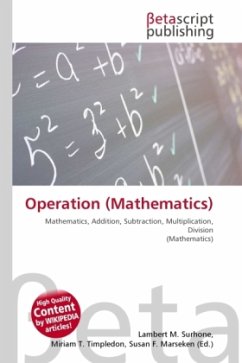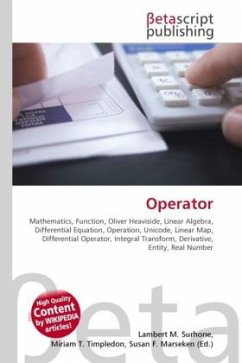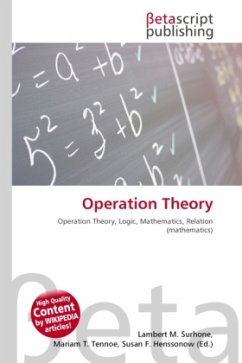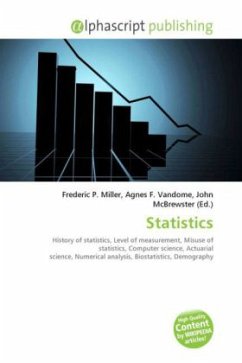
Operation (Mathematics)
Versandkostenfrei!
Versandfertig in 6-10 Tagen
23,99 €
inkl. MwSt.

PAYBACK Punkte
12 °P sammeln!
High Quality Content by WIKIPEDIA articles! In its simplest meaning in mathematics and logic, an operation is an action or procedure which produces a new value from one or more input values. There are two common types of operations: unary and binary. Unary operations involve only one value, such as negation and trigonometric functions. Binary operations, on the other hand, take two values, and include addition, subtraction, multiplication, division, and exponentiation. Operations can involve mathematical objects other than numbers. The logical values true and false can be combined using logic ...
High Quality Content by WIKIPEDIA articles! In its simplest meaning in mathematics and logic, an operation is an action or procedure which produces a new value from one or more input values. There are two common types of operations: unary and binary. Unary operations involve only one value, such as negation and trigonometric functions. Binary operations, on the other hand, take two values, and include addition, subtraction, multiplication, division, and exponentiation. Operations can involve mathematical objects other than numbers. The logical values true and false can be combined using logic operations, such as and, or, and not. Vectors can be added and subtracted. Rotations can be combined using the function composition operation, performing the first rotation and then the second. Operations on sets include the binary operations union and intersection and the unary operation of complementation. Operations on functions include composition and convolution.












